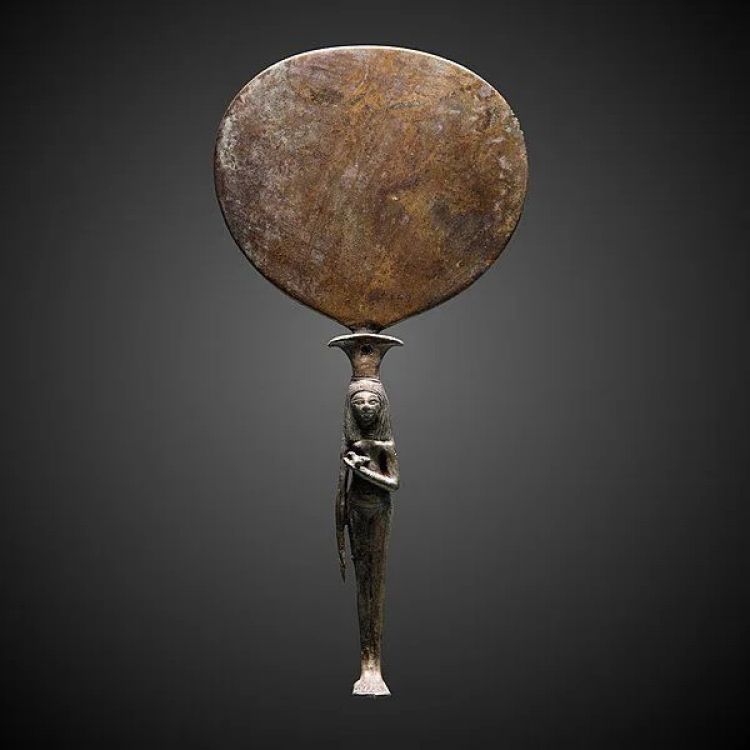13 September 2022
MIRROR OF MY DESIRES.
We can say that the mirror is to all intents and purposes a magical object: through its surface we can observe our own image, nothing could be more stunning! But... Has it always been like this? No, mirrors as we know them today are the result of a long technological process.
The origins of the mirror go back to ancient times, when they were made solely from perfectly polished sheets of metal or other alloys as bronze. Historical-archaeological studies affirm that the history of the mirror has its deepest roots in ancient Egypt: it was considered a sacred object, a symbol of regeneration and life, an integral part of women's clothing in religious rites. This highlights the strong social and cultural character of the mirror, which will change over the course of history, but which will always carry with it an aura worthy of a 'magical object'. If it originally symbolised the sun and its dimensions were little larger than the palm of a hand, in the medieval period it began to acquire an increasingly functional character, even if it was an elitist object. The mirror itself became an object in metamorphosis, capable of changing its meaning and appearance.
The mirror has always represented luxury, its production was limited and the highly expensive process confirmed it as an elite object. The earliest examples involved small glass objects coated in metal and gradually became larger as glass was introduced into the manufacturing process during the medieval ages. It was around 1540 when the Venetian Vicenzo Redor, in Murano, perfected the technique of flattening sheets of glass, creating a type of glass that had never been made before. This moment marked a profound change in the production of glass, which, through this new type of processing and later the silvering process, took over in the second half of the 19th century, allowing it to be easily reproduced and made accessible to all. The new production method caused a drastic decrease in production, which inevitably also reduced its market price. The idea of the mirror itself, which is constantly evolving, has recently been " overcome " with the creation of the first virtual mirrors, the so-called digital mirror, an interactive mirror that sometimes allows the user to have a 360° image of his/her own person.
FIAM (1973), an Italian company of excellence, proposes its own interpretation of the digital mirror. In particular, with Caadre TV (design by Philippe Starck) it proposes the mirror with built-in television.
And how do you imagine your ideal mirror?
Visit our shop and find your mirror https://www.martinelstore.com/en/prod/mirrors-91/1

